Welcome to the ICfS, a London-based independent Research and Advisory organisation dedicated to fostering a deeper alliance between the United Kingdom, the United States, India, and other global stakeholders.
ex oriente lux
Our Approach
We are a single point of access for policy makers, academics, journalists, politicians, writers, influencers and the public at large to better understand India and her diaspora.
The centre aims to deliver value to its stakeholders, entice funders to pay for value, and convert those payments to research with the potential to influence policy of governments and organisations with the aim of creating a Sustainable future.
We believe in Sustainable.
For us this means strengthening democracy, liberal institutions, the rule of law, delivering better governance, protection for all sentient beings, and our ecosystem, all underpinned by a robust ability to defend our interests.
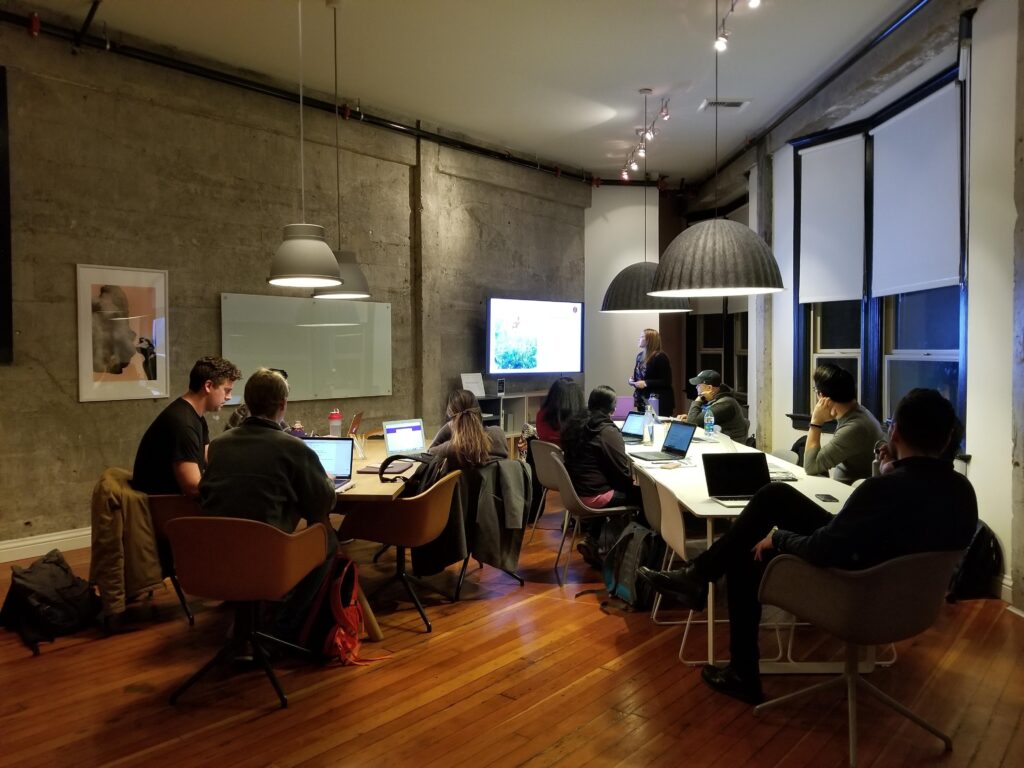
Our Team
Leading with passionate ambition.
Our team is composed of brilliant researchers and analysts, experts in big data, experienced strategists, people who understand diplomacy and policy implementation, as well as business and political leaders, and successful entrepreneurs. A diverse team composed of different nationalities, and backgrounds.

Rina Arya is a Professor at the University of Hull. She is a critical and cultural theorist who is interested in the lived experience of the South Asian diaspora in the UK, which she explores through ideas about multiculturalism, decolonising and cultural appropriation. She is currently writing about the ways in which Hindu culture is consumed outside of religious practice.

Pavel Cenkl is the Founder and Director of the Regenerative Learning Network (RLN) and has worked internationally for more than 20 years as a practitioner, educator, author and speaker.
He has worked in leadership of educational organisations in the US and the UK where has helped to foster regenerative learning, organisational and governance strategies.
Most recently the Head of Schumacher College in Devon, England, Pavel has written and presented widely in the areas of curriculum design and pedagogy, global learning networks, environmental humanities and philosophy and has co-developed interdisciplinary programmes in ecology, humanities, and sustainable and regenerative food and farming.

Ornicha Daorueng is a researcher at the Future of Faith Desk at the ICfS. She is deeply interested in religious pluralism and in fostering deeper engagement, understanding and genuine acceptance among different faith traditions, as well as between religious and non-religious communities.
She holds an MA in Buddhist Studies from SOAS and a BA in Philosophy from Thailand. Her academic focus spans Eastern philosophy, including Theravāda, Chinese and Japanese Buddhism, Daoism and Confucianism. She examines their principles and how these traditions have interacted, influenced and coexisted over time. She works to bridge Eastern and Western perspectives and to enrich global dialogue on religion, identity, and sustainable coexistence.
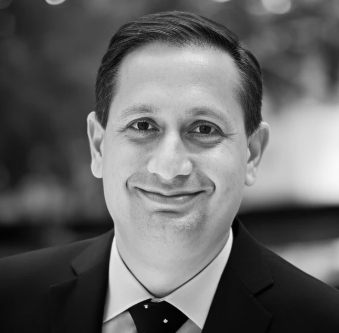
Vivek Dixit is a seasoned executive, advisor, board member, speaker, and investor with over 25 years of leadership across technology, strategy, and management consulting. His executive roles, including CTO, CIO, and SVP of Products, span the financial services and payments sectors, complemented by senior positions at Gartner, Oracle, and Cognizant.
Based in Houston, Texas, the energy capital of the world, Vivek brings a sharp focus to the global energy transition, leveraging his deep expertise in emerging technologies to guide innovation and investment in this critical domain. He leads a venture capital firm specializing in early-stage tech investments and serves as Principal and CEO of a consultancy dedicated to AI strategy, maturity, governance, and implementation.
Vivek is a trusted advisor, mentor, and board member to startups, accelerators, and VC/PE firms, and is a frequent speaker on the intersection of AI, equity, and digital transformation. He is also the author of two influential books: AI Equity: Byte for All and Monetizing AI: Navigating Wealth.
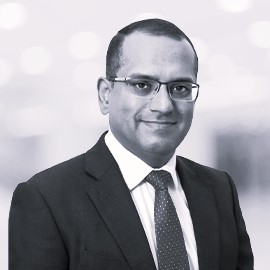
Shaurya Doval is member of the International Senior Team of Greater Pacific Capital, focusing on deal origination and the management of senior external relationships for the firm.
Prior to joining GPC, Mr. Doval co-founded Zeus Capital, an Indian infrastructure-focused investment bank that has closed more than US$1bn of transactions across multiple geographies and sectors.
Formerly, he was a Director in the principal finance business of GE Capital in London, where he worked on a number of the firm’s key equity investments. He’s also the founding director of the India Foundation, a think tank based in New Delhi, India.
Shaurya has an MBA from the University of Chicago and London Business School and is a qualified accountant.

Jade Hagen is the Chief of Staff at the International Centre for Sustainability, where she leads strategic initiatives that drive meaningful and measurable impact. She is responsible for our strategy, communications, finances, people and community engagement, ensuring that every aspect of our organisation operates seamlessly and aligns with our mission.
As an international tax lawyer, she has spent the majority of her career in financial services in Asia, specialising in financial structuring, market expansion and business development. Her recent work has involved advising startups on strategy, operations, and growth.
Jade is passionate about impact-driven businesses, innovation and sustainability, and dedicates her time to charitable causes that benefit children and the environment.
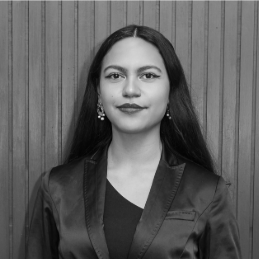
Celia Illes is part of the operations team at the International Centre for Sustainability, where she supports organisational strategy, event coordination, and executive operations. Her background spans business development, international relations, and strategic communications.
Before joining the ICfS, Celia worked with the Austrian Federal Ministry for European and International Affairs, contributing to cross-cultural and diplomatic initiatives between the UK and Austria. Celia holds an MSc in International Management and Leadership and a BA in Business Management with Distinction from Queen Margaret University, Edinburgh. She is dedicated to driving innovation that supports equitable and sustainable development.

Shruti Kapil is Head of the Security and Mutual Dependence Desk at the ICfS. She worked as a consultant for both the private and public sectors, specialising in conflict resolution, building sustainable peace, and promoting development through strategic communication.
Shruti has worked with think tanks and institutes in India and abroad on initiatives to counter violent extremism. Prior to consulting, she worked in the political division of the Embassy of Israel in India, assisting diplomats in strengthening Indo-Israel relations.
She holds a bachelor’s degree in psychology, a master’s degree in Clinical criminology from the U.K., and an executive certificate in counter terrorism studies from Israel.
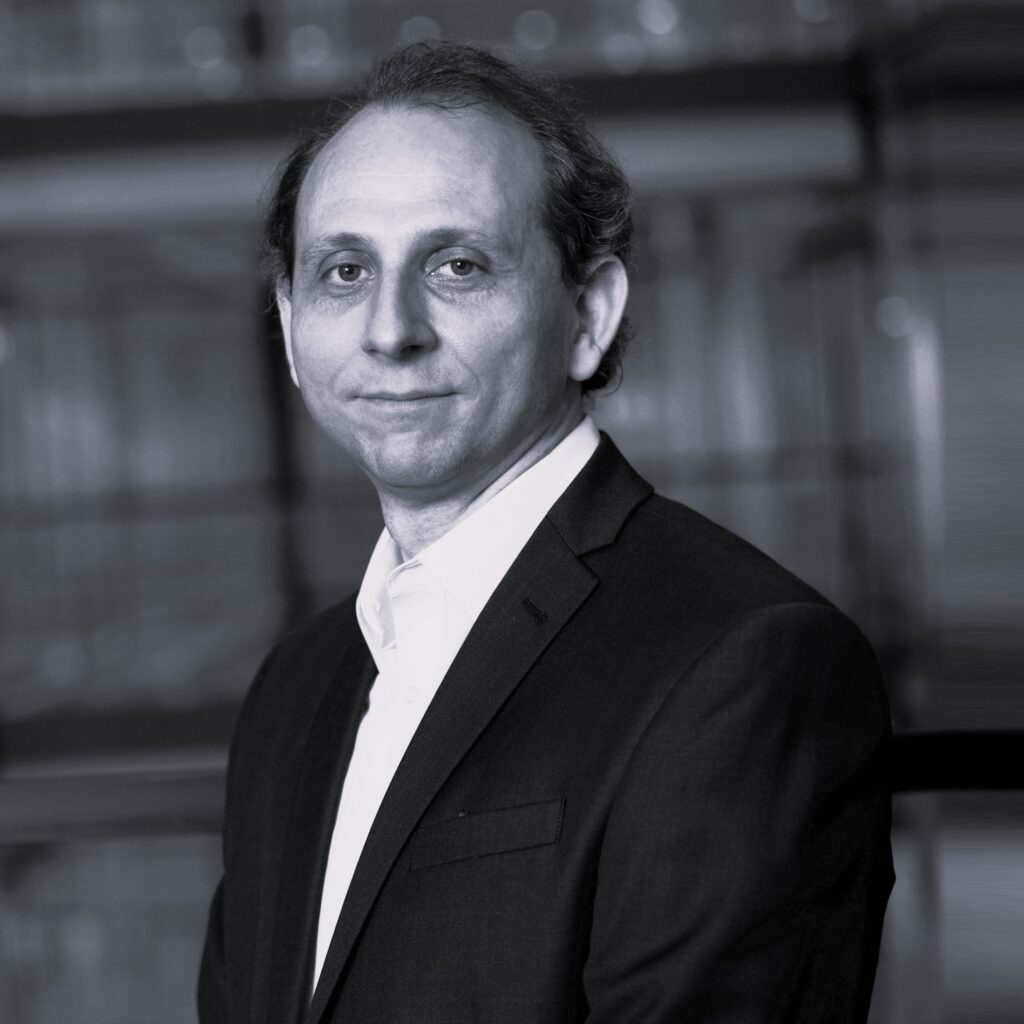
Ansgar Koene engages with policy developments around the governance and regulation of Artificial Intelligence (AI). He works with policymakers, regulators, industry leaders and other stakeholders to support the trustworthy use of AI for the benefit of people, society and organisations.
Prior to joining EY, Ansgar worked as a multi-disciplinary research scientist with peer-reviewed academic publications on topics ranging from governance of digital technologies, data-privacy, ethics, technology standards, bio-inspired robotics, computational neuroscience to experimental human behaviour studies.
Ansgar also holds an MSc from Delft University of Technology and a PhD from Utrecht University, Netherlands.
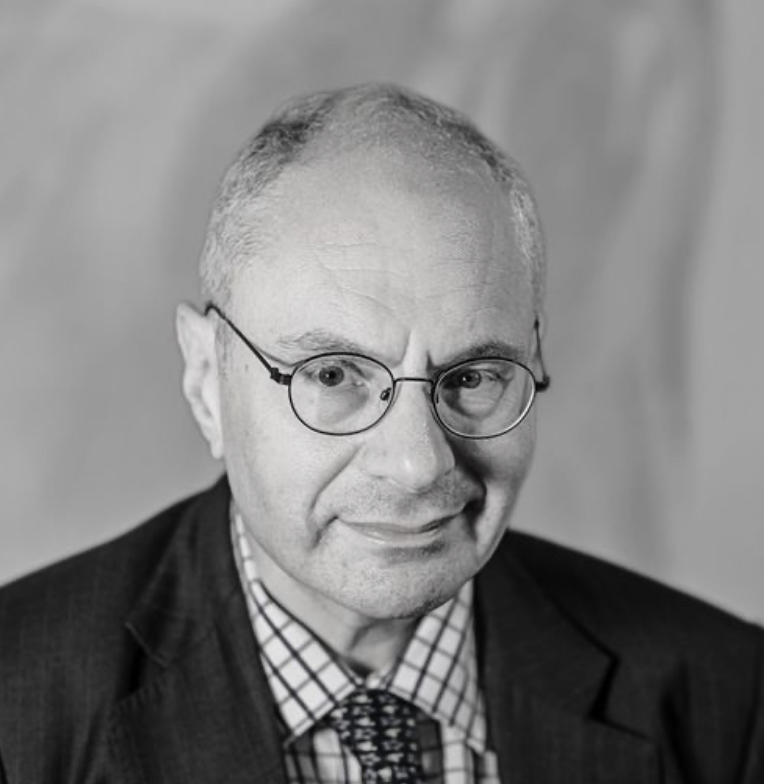
Dr David Landsman is a former British diplomat and executive and now uses his extensive senior level experience in government and the corporate world, in the UK and internationally, to help business and government engage strategically and communicate in a language understandable to all. He is currently Executive Chair of British Expertise International and Senior Adviser at the D Group, another business organisation, and the British Foreign Policy Group, a think tank. He also works with innovative tech companies and on projects in India and Europe.
He has served as British Ambassador in Albania and Greece, and held senior UK Government positions in security policy, non-proliferation and export control. He has held executive roles with De La Rue plc and most recently as Executive Director of the Tata Group’s European subsidiary. He was a Director of the UK-India Business Council and is currently Chair of the British-Serbian Chamber of Commerce.
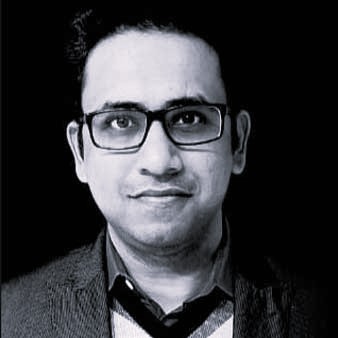
Harsh Gupta Madhusudan is an India-based economist, investor and author, and is on the board of National Stock Exchange IX.
He has written two books, the latest being ‘A New Idea of India’, and has notably written many columns over the last 15 years.
He is a graduate of INSEAD (MBA) and Dartmouth College (Economics). His earlier work is in strategy consulting and development economics.
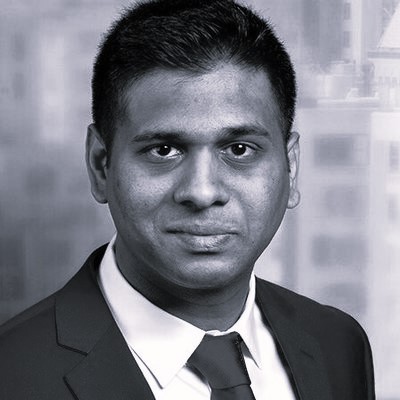
Kiran Muthal is working across Western Europe with a specific focus on Switzerland, Liechtenstein and Germany specialising in financial crime, surveillance and governance domain.
He also leads the AI ethics and Sanctions screening competency for EY Netherlands. He has worked in New York for more than a decade before moving to Amsterdam in 2020.
He is considered as a trusted advisor for senior executives in risk regulatory, compliance governance domain considering his expertise in the US and European regulations.
Kiran holds a MSc in Engineering Management (with Finance) and two under-graduate degrees.
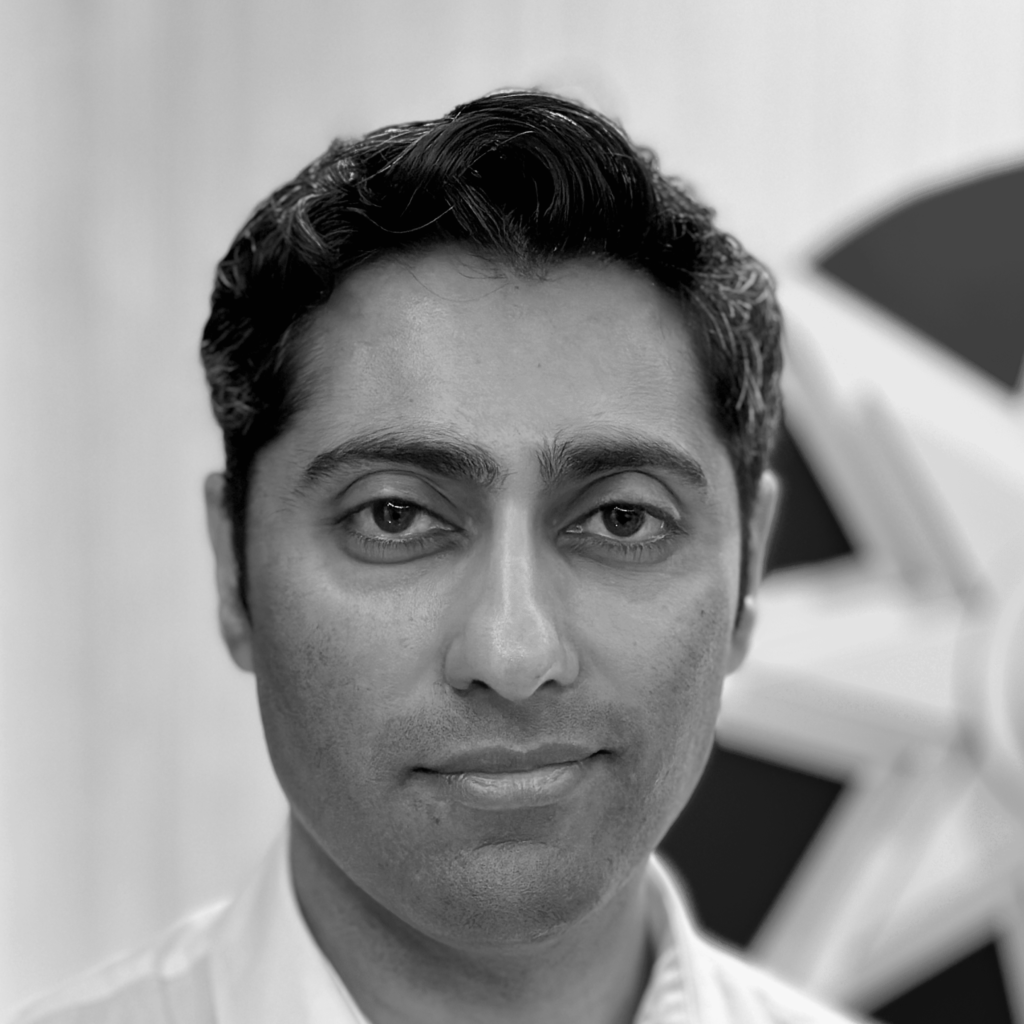
Sachin is deeply passionate about sustainability and is the founder, director & trustee of the ICFS.
He has over 10 years’ experience in private equity, capital raising, investments and exits. He has sat on multiple boards as an executive and non-executive member bringing his expertise on growth, buy and builds, capital structuring and new market access. He has been CEO of a dental chain, and a partner at Pillbox Capital, a healthcare specialist fund.
Sachin was recognised by India Global magazine as a top 100 influencer pioneering UK-India relations in 2018.
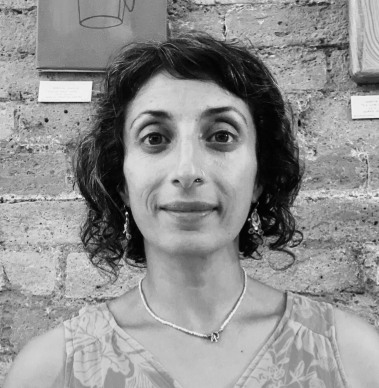
Dina Nathwani is a solicitor by training and an advocate and activist for animal rights in the UK. She has lead campaigns that intersect around animal welfare, the environment, and culture.
Dina is a qualified solicitor, having qualified in 2007. She has worked in both public and private sectors. Currently she is a lecturer at the University of Birmingham’s Business School teaching law.
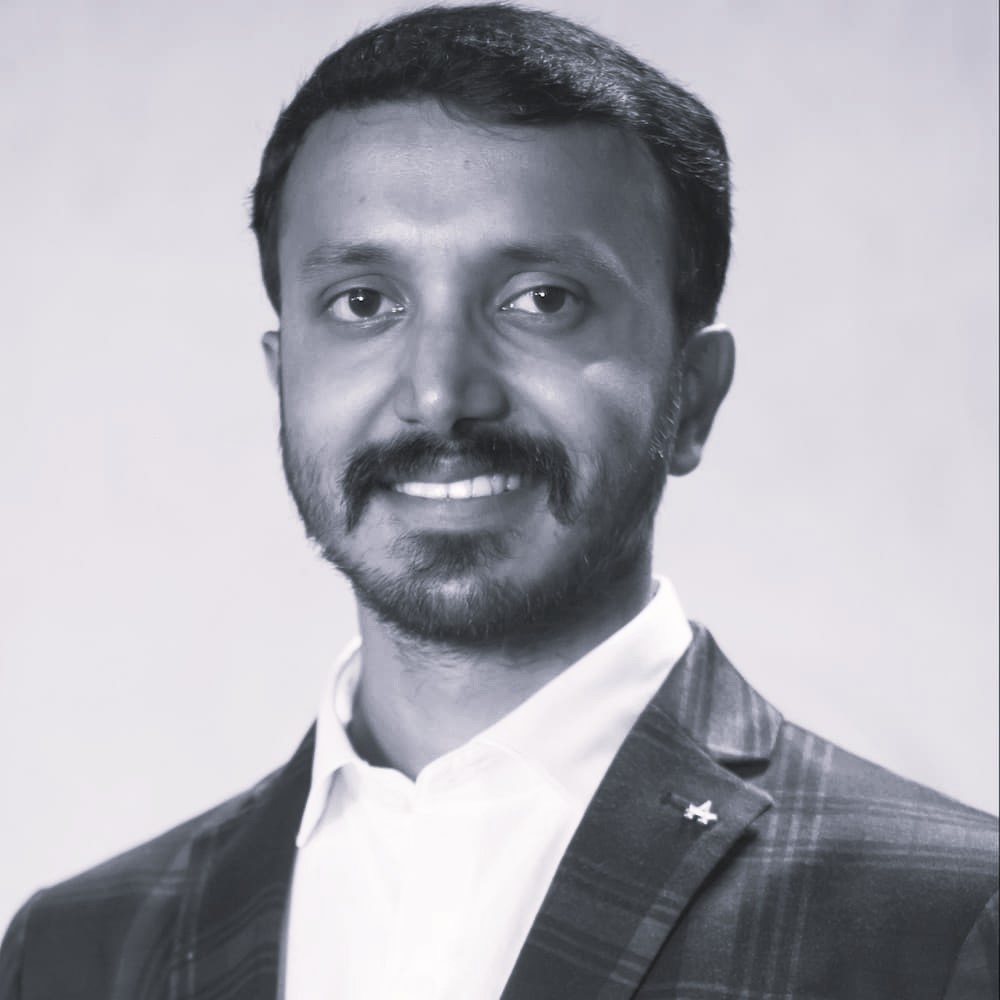
Dr. Dheeraj Paramesha Chaya is a lecturer in Criminology at the School of Criminology, Sociology and Policing.
He has a PhD in Intelligence Studies from the University of Leicester for his study on the impact of India’s intelligence culture on its strategic surprises.
Dheeraj is the author of the book ‘India’s Intelligence Culture and Strategic Surprises: Spying for South Block’, which is the first academic work on India’s foreign intelligence.
Besides academic research, Dheeraj has been imparting training to Indian security forces in the fields of intelligence and national security.
Dheeraj’s research interests lie in the area of strategic intelligence and counterintelligence for national security, sub-state conflicts, radicalisation and de-radicalisation.
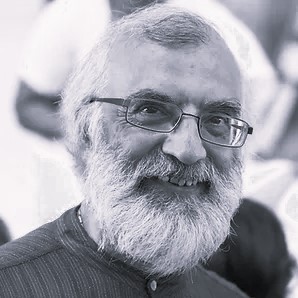
Dr Ramesh Pattni is a psychologist and a Hindu theologian whose research is in the intersection of these traditions.
He has deep interest in presenting the psychological concepts, tools, and techniques of the ancient traditions in today’s world for mental well-being.
He obtained a doctorate from the University of Oxford, Faculty of Theology and Religion, based on his research into Patanjali’s text on Classical Yoga – the Yogasūtra and Western Positive Psychology.
He also has three master’s degrees in psychology, psychology of religion, and study of religion. He was awarded an OBE in the New Year’s Honours 2020 by Her Majesty the Queen.
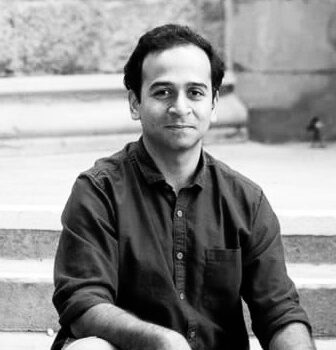
Aditya Patwardhan is a Los Angeles based film director, producer, and social impact storyteller whose work spans fiction, documentary, docu-fiction, and experimental cinema. A graduate of the New York Film Academy, he has created multilingual productions in English, Spanish, Portuguese, and Korean.
His films—streaming on platforms like Amazon Prime Video, Apple TV, Zee TV, and MTV Indies—have screened at international festivals and earned numerous awards, addressing pressing issues from gender equality to climate change and human trafficking.
Featured in media outlets from The Times of India to HarperCollins’ Highway to Swades, he uses cinema as a catalyst for empathy, dialogue, and transformation.
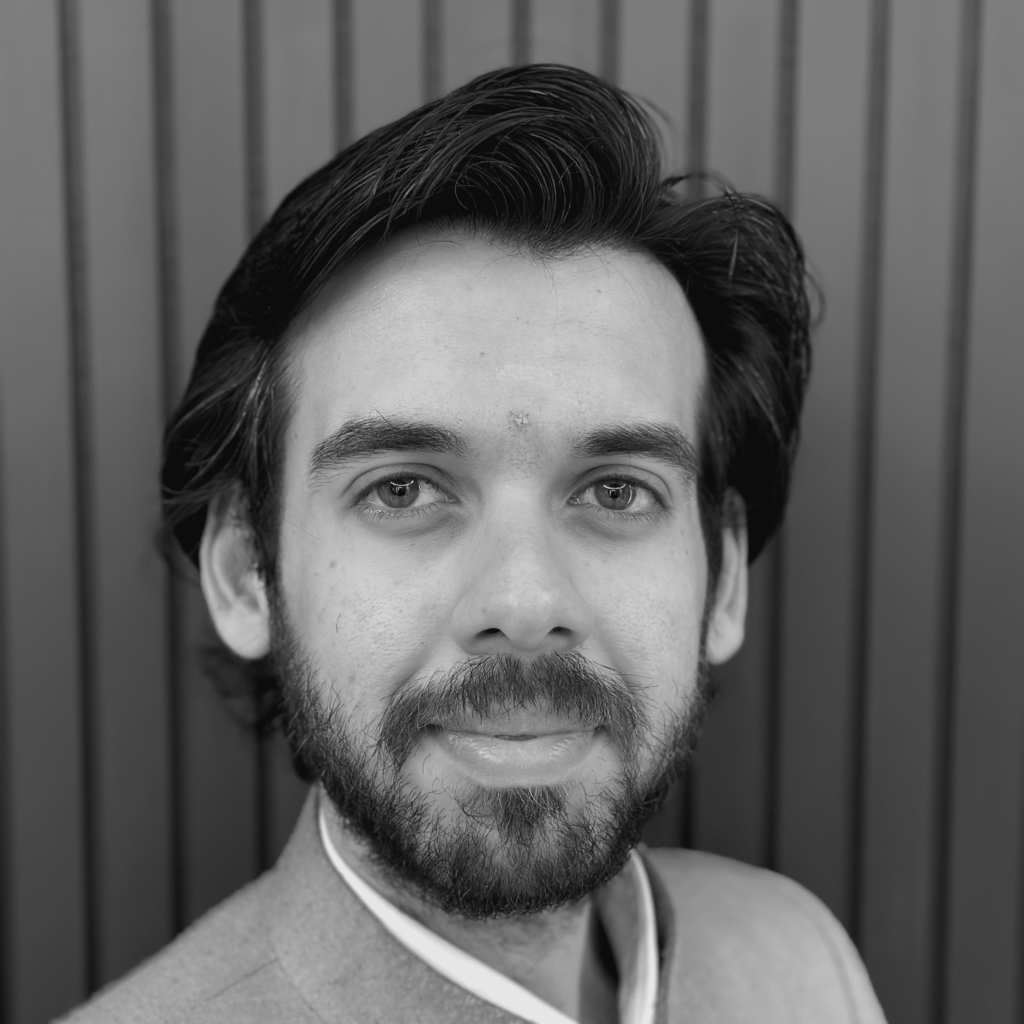
Nitish Rai Parwani is a D.Phil. scholar at the University of Oxford. Earlier, he studied law and got enrolled as an Advocate (Solicitor and Barrister) in India. He furthered his academic journey with two master’s degrees, earning an LL.M. with a Gold medal from the National Law University in Delhi and an MSc. from the University of Oxford, where he was fortunate to receive multiple scholarships.
In 2020, Nitish was appointed by the Chief Justice of India as Law Clerk-cum-Research Assistant to a sitting Supreme Court Judge, a role that broadened his legal perspective.
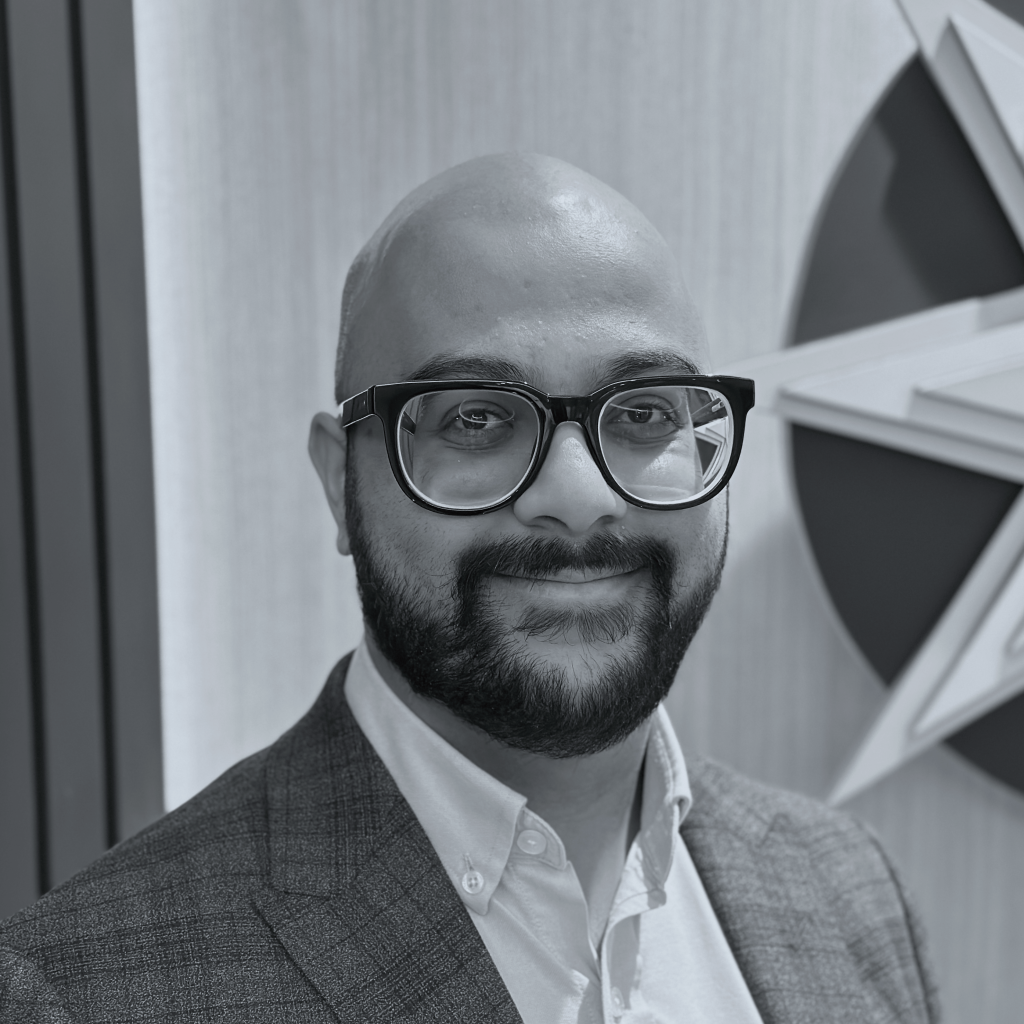
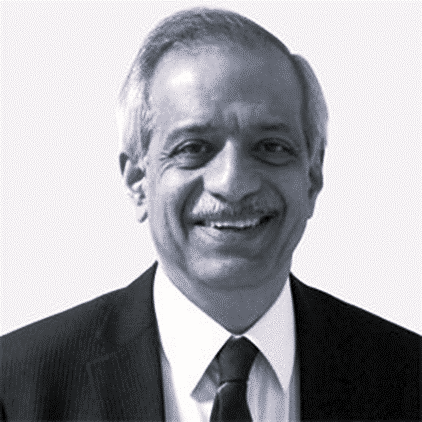
Professor Nawal Prinja, Trustee and Director at the centre, has 35 years of academic and industrial experience in the civil and defence nuclear sector. He is Technical Director of Clean Energy, AMEC Foster Wheeler, which has 1500 engineering and technology professional staff.
In his current role, he is responsible for managing technical capability, technology development and performing engineering and technical governance. He holds the position of Honorary Professor at two British universities (University of Aberdeen and Brunel University in London). He chairs the Industrial Advisory Committee of the National Structural Integrity Research Centre (NSIRC). He has published 3 books and over 45 technical publications related with structural integrity.
Naval has been studying Indian history and philosophy for many years and regularly speaks about the pluralism and antiquity of the Hindu traditions of India. He has also written extensively around the provision of religious education in British schools. He guides and sponsors research applications at the centre and provides guidance on policy.
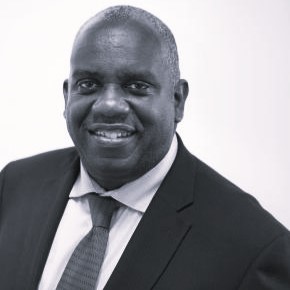
Dr Tony Sewell CBE is Chair of the Commission on Race and Ethnic Disparities. He is an international education consultant who is head of ‘Generating Genius’, a ground-breaking charity which works to ensure that talented students from BAME backgrounds are positioned to excel in STEM careers.
He has extensive experience in the Education sector, training first to be a teacher at Sussex University and then working for many years in some of London’s most challenging schools. It was in this period that he worked on his seminal PhD ‘Black masculinities and schooling’ which led to several key publications.
Amongst his accomplishment’s Dr Sewell has been an international consultant in education for the World Bank and Commonwealth Secretariat, he’s served as a board member of the Youth Justice Board for England & Wales and he was formerly a columnist for the Voice newspaper- publishing widely on race, masculinities, Black history and Education.
Dr Sewell was awarded a CBE in 2016 for his work in Education.
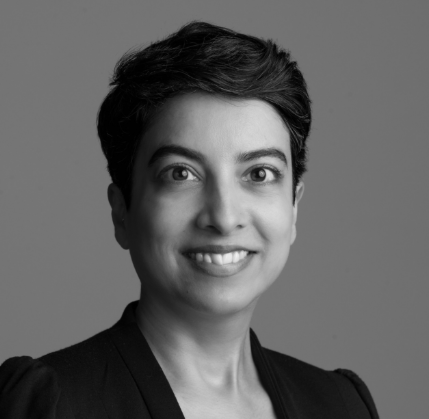
Pragna Shikotra, an accomplished chemist, and holds a BSc and MSc in Chemistry from Leicester University.
With a rich background in research and development, membership with the Society of Cosmetic Scientists and passion for skincare, she’s lent her expertise to industry giants like Boots and Reckitt Benckiser, as well as UK-based contract manufacturers.
Beyond her professional pursuits, Pragna is a committed member of Vichaar Manthan, showcasing her commitment to in intellectual discourse and community engagement.

Erik Solheim is a well-known global leader on environment and development as well as an experienced peace negotiator. He served as Norwegian minister of Environment and International Development from 2005-2012.
He led the peace efforts in Sri Lanka from 1999-2009 as the main negotiator of the peace process and played a vital role in peace processes in Nepal, Myanmar and Sudan. Erik was the Executive Chair of the OECD Development Assistance Committee (the main body of world donors) from 2012-2016 and Executive Director of UN Environment from 2016 to 2018.
Erik is chairman of the development roundtable in Green Hydrogen Organization, adviser to Global Wind Energy Council and board member of International Hydropower Association.
Erik is honorary professor at Tsinghua University (Beijing), Jiaotong University (Shanghai), Chengdu University and Southeast University (Nanjing). He is also honorary professor at the Kalinga Institute in Bhubuneswar, India.

Hitansh Singala plays at the intersection of business, technology and governance. With over 25 years of global enterprise transformation consulting experience in UK, US and India having worked for organizations like Genpact, EY and IBM – he brings deep experience in strategy, finance, leadership and board governance.
Hitansh is a seasoned non-executive director. He is a Chartered Accountant and has an MBA and Diploma in Company Direction.
He closely tracks market and policy architecture in India and UK in the space of technology, digital finance and business innovation. He also advised developing market and policy architecture for UPI, India’s iconic retail payment system.
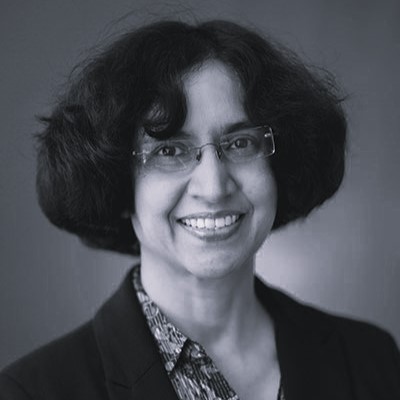
Lavanya Vemsani is a professor of History specialising in Indian History and Religions in the department of Social Sciences at Shawnee State University, Portsmouth, Ohio.
She holds two doctorates in the subjects of Religious Studies (McMaster University) and History (University of Hyderabad). She was awarded South Asia Council of the Canadian Asian Studies Association’s (SACA/CASA) Best Thesis Honourable Mention prize for her Ph.D. thesis at McMaster University.
Her research and teaching interests are varied, and multifold. She researches and publishes on subjects of ancient history and religions as well as current history of India.
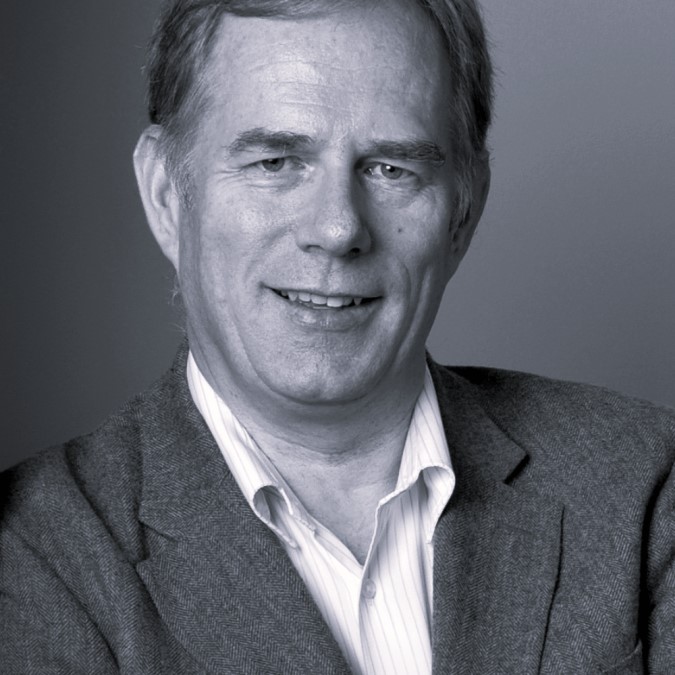
Dr David Wood is a Fellow at the Centre directing the research and policy briefings around technology and sustainability. He co-founded Symbian in 1998, which pioneered the smartphone industry.
He has since exited and now spends his time writing and speaking on all things technology, especially focusing on the longer term trends of AI, technology and regulation.
His background is in designing, architecting, implementing, supporting, and avidly using smart mobile devices. This includes ten years with PDA manufacturer Psion PLC, ten more with smartphone operating system specialist Symbian Ltd, and three years as CTO (Technology Planning Lead) for Accenture Mobility.
In 2009, he was included in T3’s list of “100 most influential people in technology.’ He has an MA in Mathematics from Cambridge University and an honorary doctorate in science (DSc) from the University of Westminster.



